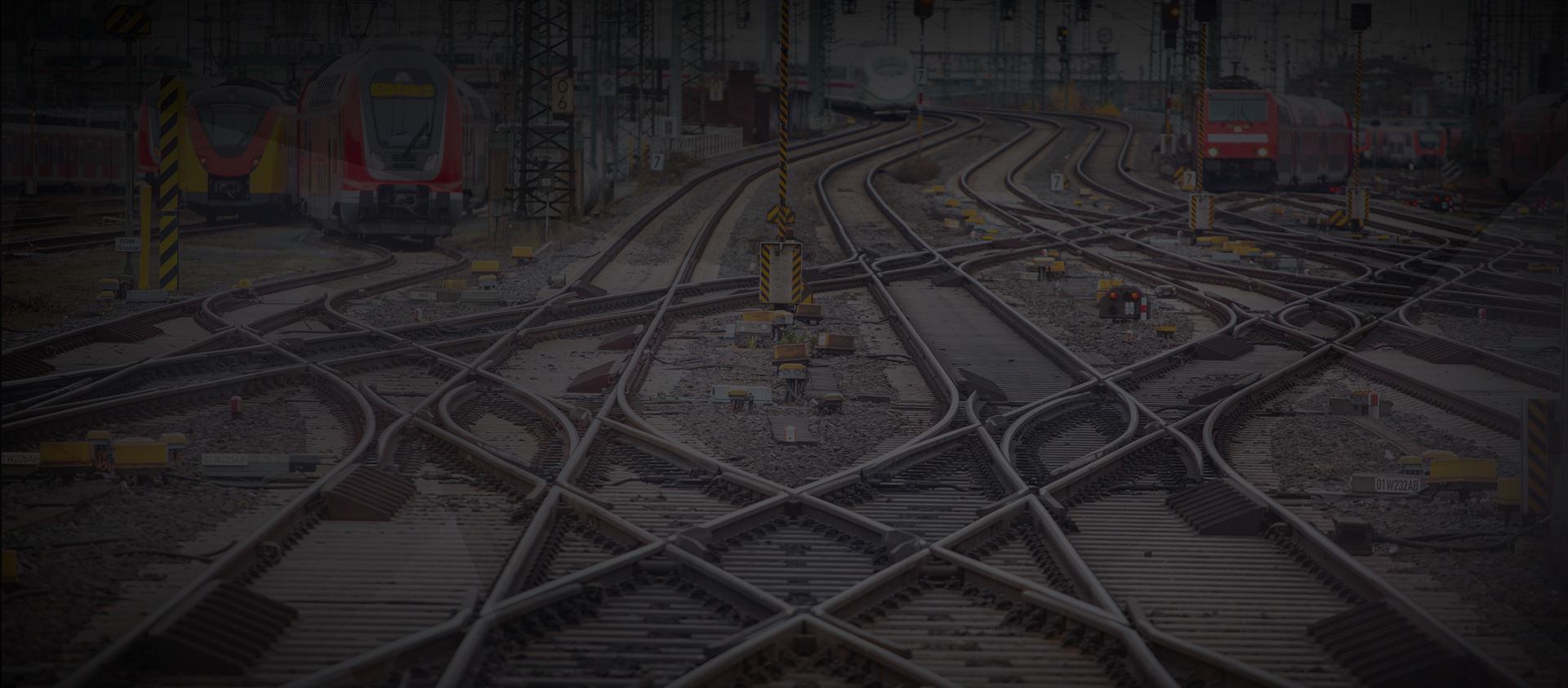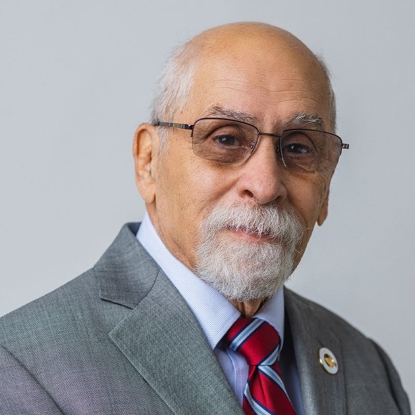
Train Accident Lawyers
Legal Assistance for Serious Injury Victims
Bolt Law Firm offers expertise in handling railroad and train accident cases across the country. We represent victims and the families of those injured or killed in railroad accidents in over 30 jurisdictions, with a strong belief that focusing attention on public safety and engineering solutions to railroad dangers will not only help train accident victims and their families but make railroads safer for the general public and railroad workers.
Forcing railroads to improve safety or face consequences is a highly personal mission for our lead railroad attorney, Joe Sayler, as he lost a brother in a railroad accident.
A dedicated group of Bolt Law Firm attorneys exclusively handle railroad cases, unlike most law firms advertising this service. In fact, because of our extensive resources and highly specialized experience, many firms refer railroad cases to us.
Most railroad and train accidents, many of them catastrophic, could be prevented if railroads would implement basic safety systems and measures. Thousands of railroad accidents, injuries, and deaths occur every year. These accidents include pedestrian train accidents, railroad crossings accidents, railroad worker injuries under FELA, derailments, train passenger injuries, and many others.
Let our railroad accident lawyer help you hold these companies responsible for the preventable train accident that injured your loved one. Contact us online or call (763) 292-2102 for a free consultation.
After a Train Accident
If you are involved in a collision with a train, you will probably feel out of control, scared, and unsure about what to do next.
Here are some simple steps to follow:
- Seek medical attention: Even if you do not think you are injured, seek medical attention immediately. People in collisions are often in shock. This can prevent them from being aware of injury symptoms. Have a professional check you out. It is better to be safe than sorry.
- Document what happened: If you can, take pictures with your phone. Record a narrative of what happened. If you do not have a recorder on your phone, take a video of the scene and talk about what happened while recording. If you are injured, take pictures of your injuries. If there are witnesses, get their contact information. If you do not have a phone that will take pictures or videos, and a witness does, ask them to take pictures for you. As a last resort, write down as much information as you can as soon as you can.
- Keep meticulous records: Record and save everything related to the collision — copies of medical records, bills, test results, visits to physical therapy sessions, days you missed work, and a travel log of miles to and from medical and therapy appointments.
- Keep a diary: As part of your recordkeeping, start a diary. Write down how you feel, pain you experience, what you can and cannot do, and even your emotional state. This is a good place to keep your mileage log of trips to medical appointments, etc.
- Contact a railroad accident attorney: A lawyer experienced in handling train collision cases will be best able to assess the details of the incident and determine potentially liable parties. Liable parties can include another car driver, train driver, train engineers, the manufacturer of the tracks or the warning systems, or the party responsible for maintaining railroad equipment.
Compensation for Injured Railroad Workers
When it comes to workers’ compensation, railroad workers fall under a unique class that isn’t covered by state guidelines. Rather, they are considered federal employees since construction, travel, and maintenance can span across several state lines. Railroad employees who are injured on the job are instead covered by the Federal Employers’ Liability Act (FELA), which was passed in 1908 to protect and compensate them. Therefore, it’s crucial that a railroad worker who is injured on the job retains the counsel of an experienced lawyer. The attorneys of Bolt Law Firm are union designated FELA attorneys.
Unlike workers’ compensation in other industries, FELA is fault-based. That is, to receive benefits, an injured railroad worker must prove the injury was at least partially caused by the negligence of a railroad employee. Negligence may be proven when the railroad fails to provide a safe environment to work in. But if it can be proven that the worker was partially at fault for the unsafe condition, the liability is proportioned between the worker and the company.
If, however, the railroad company violated federal law or regulation, the railroad company may be held to a standard of strict liability. Under strict liability, even if the worker was partially negligent, the railroad company is 100% at fault.
What an Experienced Lawyer Can Do for You
Achieving recovery in a negligence claim against a railroad company requires a skilled attorney who knows how to secure the compensation you deserve. You need an attorney with experience dealing with whatever your case presents.
Bolt Law Firm is the front line of defense capable of protecting you if you have been injured by the negligence of another in a railroad or train accident. Contact Bolt Law Firm for a free consultation to review your case and discuss your options. A catastrophic injury or wrongful death cannot be fully compensated, but Bolt Law Firm will provide a personalized approach for a positive result, allowing you to recover from the negligent party and set you on the road to becoming whole again. To schedule a free consultation, call (763) 292-2102.
Pedestrian-Train Accident & FELA Injury Case FAQ's
Have questions? We are here to help. Still have questions or can't find the answer you need? Give us a call at 763-292-2102 today!
-
How does your firm get paid for representing injured railroad workers?Bolt Law Firm offers contingency fee agreements to personal injury and FELA injury clients. Under a contingency fee agreement, we agree to work on your case and represent you without any upfront attorney fees. We are only paid for our representation if your case ends in your favor, such as with a settlement or award. The amount we are paid will match an agreed-upon percentage of your winnings, Furthermore, we might be able to convince the court to order the opposition to pay our attorney fees, leaving even more of your recovery for you.
-
Do I need a lawyer?You are not legally required to hire an attorney to assist you with your FELA or railroad injury case. But it is highly recommended that you do. FELA is extremely complex and intricate, even more so than other liability laws and federal regulations. You will likely significantly damage your case if you attempt to manage it alone and self-represent.
-
What if the railroad wants to talk to my doctors?Does the railroad want to talk to your doctor about your injury? FELA blocks the railroad or your employer from talking with your medical team without your consent. The railroad also cannot attempt to influence what medical treatments you receive. If the railroad is insistent about talking with your doctor, then you should talk with our attorneys right away.
-
Do I have to fill out an injury report? How soon if so?Yes, your employment contract should state that you will submit an injury report after being hurt while working for the railroad or related company. Typically, the worker is required to submit a report “as soon as possible” or no later than 30 days after the incident, with some variance based on the employer’s expectations. Submitting an injury report the same day as your accident benefits all parties, including you, so do not delay in this step.
-
What should I do if I am injured while working for a railroad?You should treat a railroad injury case as you would any other work-related injury case. Begin by seeking immediate medical attention if required. Next, document the scene as much as you safely can. Then, inform your supervisor about the incident and fill out an accident report. Lastly, contact a train accident attorney shortly after reporting the accident and injury.
-
What damages and compensation can I receive under FELA?Under FELA, injured railroad workers should be provided compensation that helps cover lost wages, reduced income earning capacity, medical treatment costs, and hardships and losses caused by permanent disabilities. Notably, FELA claims can also seek damages for physical pain, emotional trauma, and mental suffering, which is otherwise disallowed in workers’ compensation claims.
-
What is the FELA?FELA is the Federal Employers’ Liability Act, which was originally enacted in 1906 and passed Congressional legislation in 1908. Although the name seems to apply to all federal employers, FELA specifically applies to railroad workers who are injured on the job. It provides legal protections and guarantees to railroad workers in acknowledgment that their work can be inherently dangerous.
-
Where does your law firm handle train accident cases?Bolt Law Firm is capable of accepting train accident cases and claims from across the nation. No matter where you live or where your accident happened, we can assist you.
-
How do I choose the right train accident lawyer?Train accident cases are uniquely complicated due to the legal protections that often surround the defendants. When choosing a train accident attorney to manage your case, you should specifically ask your lawyer how much experience they have with this exact type of claim or lawsuit. An attorney who has not worked on a train accident case in any capacity before might not be prepared to handle your case.
-
What should I do if a loved one was killed or injured in a train accident?If your loved one is too injured to handle a case on their own, or if they passed away from a train accident, then you should seek legal counsel on their behalf. Talk to our attorneys about what happened, and we can advise you about what to do next. In some cases, you might need the court’s permission to continue a case in their name, but we can help you with this step, too.
-
Why do train accidents happen?Train accidents can usually be traced back to some form of negligence or another. The question is which party acted negligently? In many crossing accidents that involve a train and a car, for example, the cross guard does not function properly, and the motorist does not know the train is approaching. In this situation, one or more railroad companies and local municipalities could be liable for not maintaining the cross guard correctly.
-
What are common types of train accidents?Based on information from the U.S. Department of Transportation, there are nearly 6,000 train accidents each year that involve motorists and pedestrians. Most of these accidents involve vehicles that get hit by a train at a crossing point. Others involve pedestrians who are struck by a train at a station after wandering too close to the tracks. Derailments are devastating, but only a few dozen happen each year.





